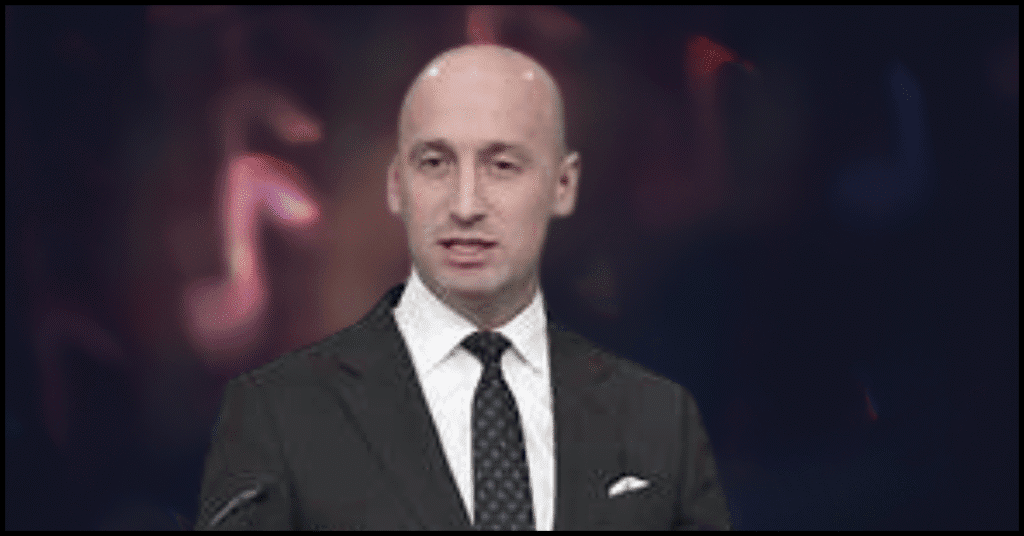President Donald Trump’s recent claim of “absolute authority” over the deployment of the National Guard to the US state of Oregon has sparked political and constitutional debate. The claim was made by White House Deputy Chief of Staff Stephen Miller in a live interview on CNN, sparking intense debate and concern among American citizens and the media.
What is absolute authority?
The term absolute authority* is related to the principle of separation of powers in the US Constitution. In the US system, the three major branches of government, the President, Congress, and the Supreme Court, operate independently and check each other. “Absolute authority” refers to the power that any branch of government or individual has over a specific issue. However, in the US, such power has clear limits, checks, and balances; no single branch or president can have complete control.
According to Cornell Law School, absolute authority is “the power over a specific area that has no limits.” Stephen Miller cited Title 10 of the US Code, which gives the president the authority to deploy the National Guard, especially in times of insurrection or invasion.
Presidential Powers and Conditions
The president can deploy the National Guard if he believes that the country is in a state of insurrection or invasion, making it impossible to enforce the laws. In recent cases, the Trump administration has attempted to use this power to deploy the National Guard in states such as California and Oregon; but the courts have blocked the administration’s claim because those conditions were not met.
This incident forces us to examine the fundamental principles of American democracy – separation of powers, checks and balances, and the will of the people/people. Often, such claims of ‘absolute power’ raise concerns among citizens about presidential control, individual rights, and government operations..
The climate of 'No Kings' movements
In 2025, more than 2,000 cities in the United States held “No Kings” protests. Thousands of citizens sent a message to Trump that the American administration will not accept a monarchy or dictatorship. Democracy, the Constitution, and individual freedom are American values, and “absolute power” is a potential threat to the image of dictatorship.
Donald Trump also made it clear that “I don’t feel like a king” and that he has to act within the limits of the American Constitution. However, the use of the concept of “absolute power” has increased the discussion of comparing the powers of other dictators in American and world history – such as Mussolini, Hitler – to those of others.
Stephen Miller's interview and technical difficulties
CNN anchor Boris Sanchez asked Miller: “Do you consider the decision of the district court to block the deployment of the National Guard in Oregon to be a ‘legal insurrection’? Is the administration going to comply with that decision?” Miller said, “The administration has filed an appeal with the 9th Circuit… The government has won an appeal in the 9th Circuit before…” Then a technical glitch occurred and Miller’s communication was incomplete.
This technical glitch, the incomplete communication, and Miller’s change of attitude during the response all added to the confusion among the American public and the media. People shared the video on social media, intensifying the discussions.
The court's decision and the administration's response
The nature of the questions between Boris Sanchez and Miller in the conversation in the TV interview was very clear: to what extent are the president’s powers within the framework of the law? Will the administration comply with the court’s directive or not? This directly affects American citizens – because the deployment of the National Guard affects fundamental issues such as public safety, freedom, and state autonomy.
The concept of “absolute power” has not only constitutional but also social and political consequences. Citizens must consciously evaluate every action of the government. According to the US Constitution, the people are supreme and no one person or institution should have unfettered power, and it is essential for citizens to be vigilant and active in upholding this role.

The president, the leadership, the courts, and the media – all must be kept under close scrutiny by the public. The principles of the Constitution, individual freedoms, and the right to justice must be respected. According to American values, “absolute power” cannot be unilateral and uncontrolled power.
Message to American citizens
As an American citizen, you have the right and responsibility to seriously evaluate any claim of power by the government. The concept of “absolute power” is not limited to the law or the constitution, but also affects your daily life, safety, and personal freedoms.
Every American citizen must protect their rights through dialogue, discussion, voting, and collective action. Continuous questioning of government decisions, claims of key leaders – and participation in the debate – is the core of democracy.
The public should keep a vigilant and keen eye on the administration, carefully examining today’s Constitution, today’s court decisions, and the information coming out through the media. Any claim of “absolute authority” should be treated with utmost criticism, worldwide.We should learn from the experience of dictatorships in history, and be proud of the values of American democracy.
In American democracy, power is a “game of balance” – so the system runs smoothly without any one person or branch having complete power. A government official, a president or any leader – must have competing voices, court decisions and public pressure. Therefore, the American people need to be told that “full responsibility” and “full transparency” are needed more than the word “full power”.
To look at such events with a sober eye, to take care of the principles of the Constitution from the beginning, and to keep questioning the activities of the government – this is the true path of an American citizen.
